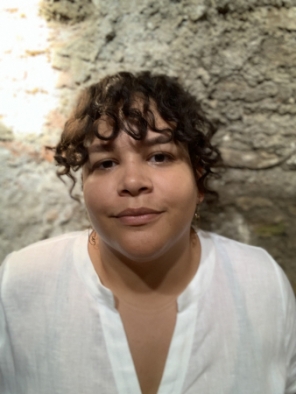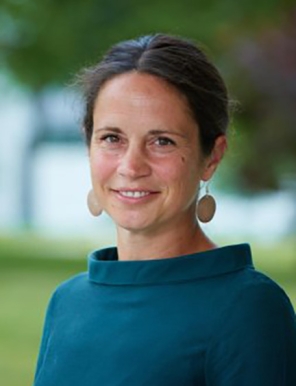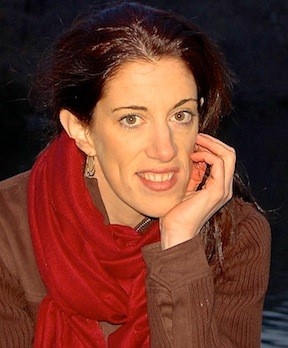Seminar 2021-2022
”What is Human?“ Seminar Participants
James Berg, Seminar Leader
Associate Professor of English and American Literatures
I am working on a book, The Character of Shakespeare’s Plays, an archeology of the concept of literary and dramatic “character” exploring the foundations of our culture’s identification of “humanity” with reading and signification. For centuries, critics have admired Shakespeare’s “characters,” as in fictional human beings. Strictly speaking, however, to explore literary “character” in Shakespearean terms is to explore the pre-history of this term that we now use to label fictional human beings. In Shakespeare’s time, the term “character” meant not “fictional human being” but “signifying mark,” “figure,” or “reading material,” and was only beginning to converge with the Aristotelian term ēthos as applied, in a moral context, to persons in fiction. What does it mean that we use a term Shakespeare himself would have taken to designate “reading material” to designate “fictional human being”?
Our doing so might seem to suggest that fictional human beings should be taken as mere signifiers, fragments of text whose very being is subordinate to what they signify, and to the real human readers to whom they signify. Yet modern, novelistic aesthetics regard the ideal literary character as the opposite of this—as one who, through “complexity” and “depth,” transcends the servile status of allegorical figure, eliciting empathy, like real, human readers. Shakespeare’s plays, I propose, reveal an assumption that modern, novelistic aesthetics conceal but still often harbor: the paradoxical notion that any complete human being—fictional or real—is, ultimately, mere figure, mere instrument of signification, mere “character.” In Shakespeare, dramatis personae such as Hamlet, Ophelia, Lear, and Othello do often seem to be readers of character, not character to be read. But then, as in a Möbius strip, reader and reading material are not separate: Shakespeare’s plays reveal that human beings become the reading material that they are by virtue of a performative process of reading itself, which not only informs but also forms them, and finds expression in their action. Though character is subordinate to readers of character, the very process of reading character is a process of becoming character. The dramatis personae who seem “alive,” like real human beings, are, in Shakespearean terms, actually character-in-the-making. This Shakespearean way of understanding the range of the human (from reader to reading material) informs our attitudes not only towards iterary character but also towards ourselves, with our conceptions of race, gender, and property. It prompts questions as to whether a different kind of aspiration—something other than human as reader or reading material—might be possible or desirable.
Raquel Albarran
Assistant Professor of Luso-Hispanic Studies
Translation and Social Change
I am working on a Spanish translation of We Will Not Cancel Us: And Other Dreams of Transformative Justice (2020) by the visionary activist, doula, facilitator, and somatic practitioner adrienne maree brown. In this work, brown envisions abolitionist futures beyond the poisons of supremacy and cancel culture. This exercise is further connected to a new 400-level translation course titled “Spanish for Social Change.” Ideally, both the personal and student-centered exercises in translation I engage in during my fellowship year will continue to transform my scholarly work at the service of diverse, intersecting communities committed to the just transformation of our societies.
Carrie Anderson
Assistant Director of The Axinn Center for the Humanities, Associate Professor of History of Art and Architecture
Finding the ‘human’ in the Digital Humanities: Art History and the Dutch Colonial Archive
The Dutch East and West India Trading Companies are known for their bureaucratic scrupulousness, having left copious records of their administrative activities in former colonies across the globe. This penchant for archival diligence is most conspicuous in records of the commodities trade, for which prices, measurements, and quantities of tradable goods like textiles, beads, weapons, tools, and enslaved human beings were carefully and callously calculated. There is a danger, however, in enlisting these archival data in the service of historical positivism, for it perpetuates the excision of human agency that underpins the Dutch imperialist agenda in two critical ways. First, it normalizes the semantics of data collection imposed by predominantly white European men, in which value is assigned according to observable physical characteristics problematically presumed to be neutral. Second, these archival records belie the sociability of humans and commodities, relationships that are bound by highly charged inequities of power, but also independent systems of meaning operating beyond the purview of Company officials. In the wake of the Digital Turn, it is imperative that the structural inequities of power engrained in colonial archives are not reified and perpetuated in the emerging digital cultural archive.
The scholarship target for this proposal is an article that will draft a set of best practices for working on data-driven digital humanities projects that draw from colonial archives. In addition to the article, the research completed during the seminar will contribute to the development of a new course called “Art, Racism & the Digital Humanities,” which will have both a critical and a practical component.
Kristin Bright
Associate Professor of Anthropology
The Roaring Twenties: Sexual Expression at the Edge of the Human
This project asks about the turbulences and possibilities entailed in GenZ sexual expression in the 2020s. It is rooted in an ethnographic study we are carrying out with Vermont high school nurses and educators about student health in pandemic times, but it attempts to explore contemporary (post pandemic) sexualities more broadly. What are the implications of emerging uses and contexts of sex for how we understand its role in constituting “the human”? How are lives and bodies entailed in technologies (pills, condoms, phones), socialities (hookups, peer groups), and collective moments (coronavirus, BLM, #MeToo) that seek to enable or foster sexual liberation? In this project, I ask about the limits of humanist understandings of liberation that start from the position of individual agency and move straight, like Cupid’s arrow, into the rights of persons. How do GenZ uses of sexting and other practices or objects travel in transductive ways, as queer animacies (Chen 2012; Ahmed 2019), reshaping possibilities for resistance to neoliberal biopolitics. This project attempts to draw method into theory, by carrying out a multimodal study of health data (Guttmacher, Outright, Planned Parenthood) informed by interview data and analyses of social and other media. Alongside my colleagues in this seminar, I hope to use this project to draw new attention to the ways “folded” combinations of things, whether theory or method or language, can resist commonsense orderings of the world.
Justin Doran
Assistant Professor of Religion
Prophet Sharing: Political Prophecy across Post-Secular Media
My project for the Axinn Center’s Humanities Faculty Research Seminar is an exploration of how the affective economy (Ahmed, 2004) of political prophecies—religious and secular—creates visceral, human experiences for their participants. The American news media have reported that a major motivating factor in the Jan. 6 insurrection was QAnon’s prophecy of a coming “storm” that would sweep away the enemies of Donald Trump. But there were also many prophecies that preceded QAnon and were vital components of the conservative, Christian coalition that elected Trump in 2016. These prophecies are portrayed as distinctively religious, while QAnon remains secular and therefore a problem of “misinformation” or the lack of regulation in the digital social media. In particular, I’m interested in how the emotional charge of prophecy’s narrative structure orients humans in the stream of historical time, and how that enlivens (that is, makes live) beliefs about an imminent future, catastrophic or triumphant.
Irina Feldman
Associate Professor of Luso-Hispanic Studies
My project centers on two 20th century intellectuals from the Andean region: José María Arguedas, a Peruvian writer mostly known for his powerful fiction, whose writings deal with the question of possibility for the Indians to become citizens of a modern postcolonial nation; and Fausto Reinaga, a Bolivian intellectual, considered to be a central ideologue of the Indianist ideas and social movements that they inspire. For both, the question of What is Human? is at the heart of their inquiry and political proposals. Arguedas and Reinaga are acutely aware that since the arrival of conquistadors to the Americas, the question of humanity of the Indians has been at the center of the colonizer’s discourse on the Indians’ servitude. These colonial constructs have not gone away with the formal arrival of Independence to the countries like Peru or Bolivia, in the beginning of the 19th century. To respond to this reality, Reinaga takes on Socrates, Descartes, Hegel and Kant (and other exponents of the Western tradition) and argues that their concepts of temporality and human subjectivity provided the necessary epistemic scaffolding for slavery. Arguedas struggles to deploy in his writings an indigenous worldview, which conceives of the categories of human, animal, and nature in a way very different from that determined by the Cartesian Cogito. I study the alternative mode of humanity in connection with animal, nature, and the universe as it is expressed in the oeuvre of these two important writers, whose writings inform, until today, social struggles of the indigenous peoples in the Andean region.
Linsey Sainte-Claire
Asst Professor of French & Francophone Studies
The Black slave as/at the antithesis of reason in French colonies
My project looks at how Black slaves were represented in the colonial imagination in French colonies from the end of the end 17th century to the beginning of the 19th century. I contend that, through derogatory discourses closely linked to a rhetoric of/from madness, travelers and settlers erected an inhuman image of the Black slave as a bête bête (an idiotic beast/brute) in order to justify and preserve their socio-political and economic power.
Using Michel Foucault’s quadruple system of exclusion (“Madness and Society” (1970)), I show how colonists actively excluded slaves from the economic production (fruit of their own [slave’s] labor) ; the reproduction of society (family and sexuality) by disrupting filiation ; language (speech) by depriving them of a voice; and ludic activities (games and festivals) by legally forbidding slaves’ gatherings, rendering slaves the madmen (or rather mad beasts) of the colonial era.
By closely analyzing French travel narratives (proto-literary texts), French racial taxonomy (pseudoscience), and the edict of 1685 of Louis the 14th, known as the Code Noir (legal document ruling the order of the colonies) I intend to illustrate how Black slaves were biologically, intellectually and legally deprived of their humanity and the irrationality of such accounts.







